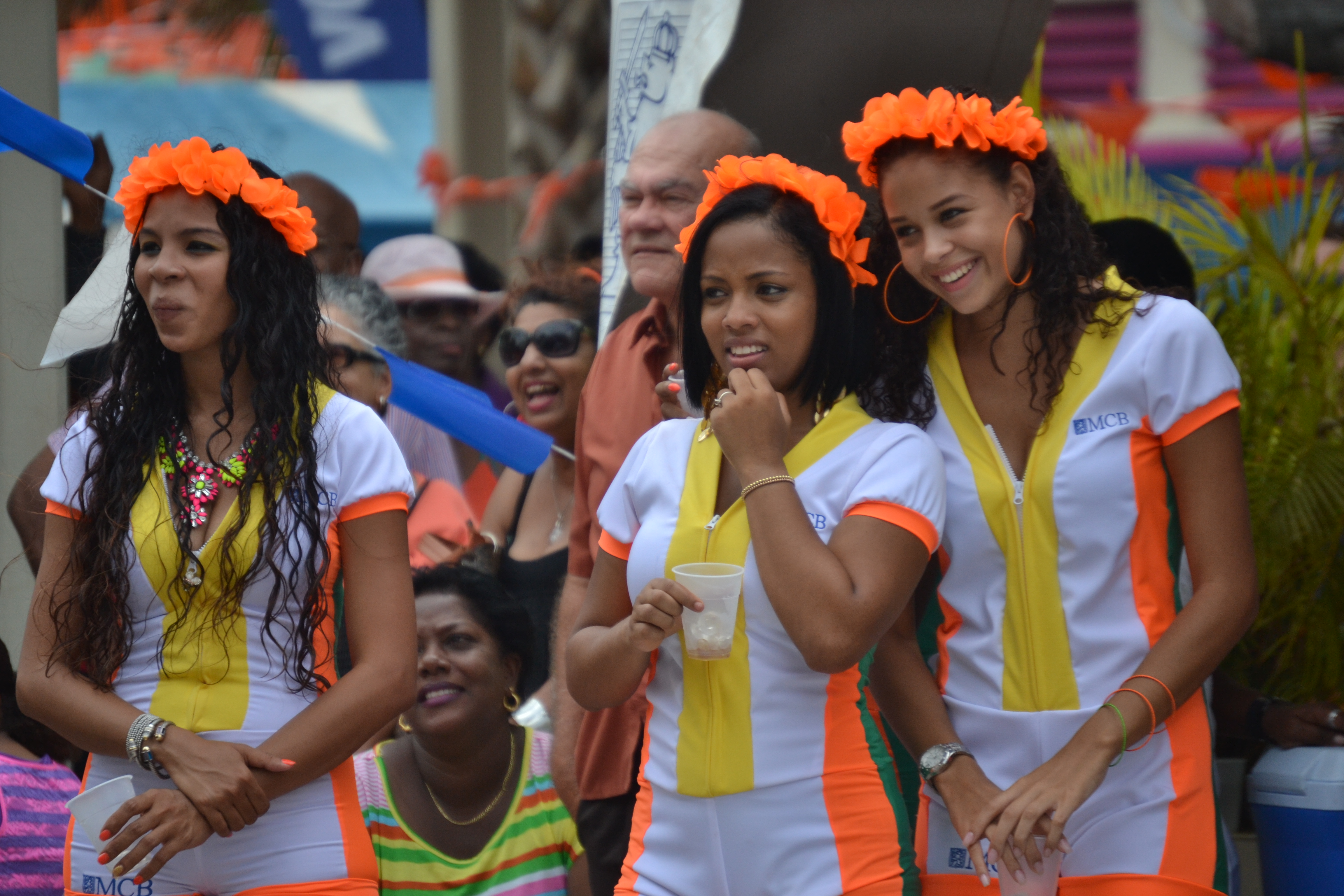Towards a unified orthography for Papiamento (2)
by Fred de Haas
In this article I’ll try to make a proposal for a possible uniform orthography which is not meant to be a simple ‘exchange’ between the two prevailing systems but rather a system that pretends to exceed them.
It is important to stress once again that we should not lose sight of certain pertinent considerations.

Orthography is a mere ‘tool’
People sometimes tend to identify themselves with a particular orthography.
Thus one can feel oneself a contented Aruban with a so-called ‘etymological’ spelling system and an equally contented Curaçaoan or Bonairean with a so-called ‘phonological’ orthography. However, we need to be aware of the fact that, in essence, orthography has nothing to do with ‘identity’.
A spelling system should be ideally as unequivocal as possible. Herin lies a wonderful opportunity for Creole languages. These are not burdened with a millenary past such as is the case for e.g. French, Spanish or Portuguese.
In this case there is an opportunity for the Papiamento Creole language.
The fact that a spelling should be ‘unequivocal’ does not imply that it should render all sorts of variations in the way people pronounce their language. A Brazilian speaker will pronounce the final ‘o’ in ‘cantado’ as the ‘o’ in ‘amor’ whereas a Portuguese will pronounce the final ‘o’ as an ‘u’ like the sound ‘oo’ in the English ‘cook’. A Portuguese speaker will drop the final ‘e’ in ‘saudade’ where the Brazilian would pronounce the syllable ‘de’ as the English letter ‘G’. Despite all this variation in pronunciation people in both countries – Portugal and Brazil – continue to write ‘cantado’ and ‘saudade’. One assumes, quite reasonably, that people themselves know how they want to pronounce these words.
This underlines the relative importance of the way people write. Once you agree with this conclusion you may also conclude that the language of the Leeward Islands may very well be written as ‘Papiamento’ (with a final ‘o’) and leave it to the native speakers to decide which way they want to pronounce the final ‘o’. The Curaçaoan will continue to pronounce the ‘o’ as in ‘good’ without it being necessary to express this habit in writing. The same goes, mutatis mutandis, for the Aruban.
We can only repeat that orthography is only a means to communicate, a simple ‘tool’. It is not a target in itself nor is it an identification model.

Girls of Curaçao. Foto © Michiel van Kempen
Preferably no referendum on orthography
Sometimes it would hardly seem advisable to let the ‘man in the street’ decide on the choice and implementation of a new spelling system. For the simple reason that people are very much inclined to let themselves be distracted by politically motivated ‘advisors’ who might trigger false emotions in order to win votes on an emotional spelling ticket. A second reason could be that people let themselves be guided by what they deem ‘nice’ or ‘ugly’. Such criteria are suspect. What people find ‘nice’ today they may easily find ‘ugly’ tomorrow. And the other way round.
There is also the group of ‘romantics’ that clings to the opinion that ‘the more Papiamento looks similar to Spanish, the ‘nicer’ it is. Of course, these romantics are entirely entitled to their opinion, but they are hardly the people who can be expected to be open to change.
And there is still another category: the category of functional illiterates. These are not likely to be well-informed decision-makers. Nor are the ‘indecisive’ ones who may be convinced of one thing and at the same time of the opposite thereof.
No, beware of plebiscites! Let’s rather opt for a group of sensible people who can be expected to come up with a solution that would be agreeable to a majority of people.
Empathy
Although we have argued that is would not be wise to let the ‘man in the street’ decide on which spelling system to implement, it would nevertheless be sensible and advisable to consider understandable susceptibilities which may disquiet – mainly elderly – native speakers.
If in any way possible – which will be often the case – we can meet reasonable and understandable feelings of people.
Susceptibility may arise from the spelling of geographical names people may feel themselves attached to.
The character of a language
While designing a new spelling system account will have to be taken of the fact that Papiamento has words and expressions that in fact belong to the linguistic patrimony of a ‘foreign’ language which, as far as spelling and pronunciation are concerned, may strongly deviate from the ‘romance’ character of the Papiamento language.
One of the languages that strongly differs from Papiamento is the Dutch language. We know that Papiamento has undergone unmistakable Dutch linguistic influences. Words like ‘gezaghebber’ (= person in charge, authority), ‘toch’ (= yet, nevertheless), ‘januari (= January) and ‘duim’ (= thumb) are common (Dutch) words in Papiamento.
One could choose to copy these words in Papiamento the way they are spelled in Dutch. But one may also prefer to replace certain Dutch letters by other letters or by accenting certain syllables in order to caution people that they are confronted with a specific way of pronouncing.
It is not beyond imagination that a Papiamento native speaker could easily pronounce a Dutch word like ‘duim’ as the ‘ui’ in the Spanish ‘cuidado’ (as ‘quee’ in English ‘queen’). Such expectable ‘mispronunciation’ could be a reason to put an accent (for example a circumflex accent) on the ‘u’ of ‘duim’: ‘dûim’. The circumflex accent would be merely a code indicating a specific way of pronouncing.
In case one should choose to maintain the original ‘foreign’ spelling in the language’s new spelling system (in order to avoid an excess of accents), it would be advisable to indicate in phonetic script and within square brackets – in wordlists and/or dictionaries – the way of pronouncing.
Example: duim [dœym]. The original language – if retraceable – should be indicated as well, for obvious etymological and historical reasons: Dutch.
It stands to reason that in primary schools it would be the task of the teacher to prompt the correct pronunciation. Once in secondary school it would be useful for students to learn how to read phonetic script. Knowledge of phonetic script is also very practical when consulting standard dictionaries in a variety of languages.
Should you wish to produce phonetic signs yourself this can be easily done on the computer with the help of the Alt-key and the numeric keyboard on the right. You may want to look up in Google ‘ASCII signs tables’.
You could also borrow signs from the IPA, the International Phonetic Alphabet. Example: in order to render the English/Spanish/Greek sound ‘TH’ IPA uses the symbol [θ].

Vegetation of Aruba. Foto © Michiel van Kempen
By way of conclusion
For a clear understanding of the matter I would like to point out that the examples for a uniform spelling design (see following pages) are models that are open to criticism, change and augment.
I would also like to stress that it is of utmost importance that a new, uniform spelling system be created in the interest of the modest number of the ± 270.000 Papiamento speakers who undoubtedly will appreciate that their language be maintained and continued to be cherished by all.
The language itself forms part of the immaterial European cultural patrimony by the sheer fact that the Papiamento language owes its origin mainly (for about two thirds) to the languages of the Iberian peninsula, enriched by elements from old ‘African’, old ‘Caribbean’ languages and Dutch.
Future generations will undoubtedly be able to draw profit from a uniform spelling the creation of which will also have a benign influence on the sometimes faltering communication between the Leeward Islands. It will also enable facilitation of free and easy exchange of literature, newspapers and schoolbooks.
It is our hope that in the not too distant future a working group will be put in place in order to finalize the concept and creation of a spelling that can stand the test of criticism and receive the general approval.
My preference would be to make a group of (young) Papiamento language specialists who feel themselves motivated to design a useful uniform orthography and who don’t feel themselves burdened by the weight of the past, turbulent experiences in the spelling field.
It would seem superfluous to add that in last resort we will have to count on the overseas’ political will to give wings to this pilot project.
Fred de Haas
Wassenaar, March 2016
To be continued, part 3, click here
